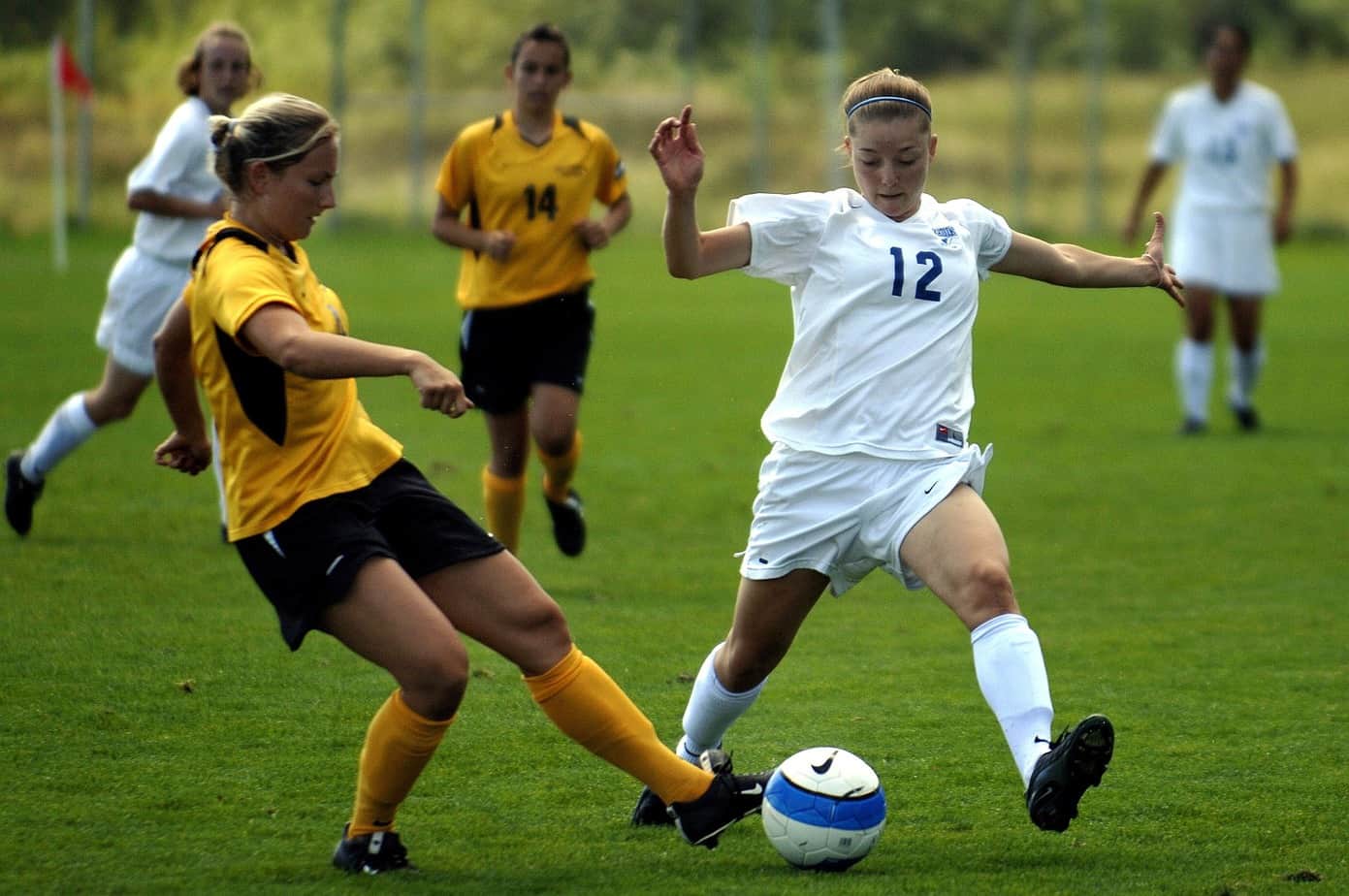Football-specific training or active recovery: which promotes better recovery?
Your weekly research review
Contents of Research Review
- Background & Objective
- What They Did
- What They Found
- Practical Takeaways
- Reviewer’s Comments
- About the Reviewer
- Comments

Original study
Trecroci A, Porcelli S, Perri E, Pedrali M, Rasica L, Alberti G, Longo S, Iaia FM. Effects of Different Training Interventions on the Recovery of Physical and Neuromuscular Performance After a Soccer Match. J Strength Cond Res. 2020 Aug;34(8):2189-2196. doi: 10.1519/JSC.0000000000003269. PMID: 31373975.
Background & Objective
In competitive football (soccer), players are frequently required to play in periods with congested fixtures in which they have limited time to recover between matches (3–4 days).
The authors in the current study compared the function of the knee extensors and flexors, as well as sprint performance, after completing football-specific training or an active recovery regime 48 h following competition match
What They Did
Nine sub-elite football players played two 90 min friendly matches with similar match activity profiles. On one occasion, 48 h after the match, players performed a 60 min soccer-specific training session consisting of small-sided games, tactical drills, and set plays. On the other occasion, players performed a 30 min active recovery session consisting of circle drills, dynamic stretching, and low-intensity jogging.
72 h before, immediately after, and 72 h after the match, participants were evaluated for:
- Repeated sprint ability (5×30 m with 25 sec rest).
- Neuromuscular performance (maximal voluntary contraction of knee extensors and flexors).
What They Found
The main findings of this study were:
- Performing a low-intensity active recovery training session 48 h after a football match promoted a better restoration of muscle force of the knee flexors after a match compared with a more traditional training session composed of football-specific drills.
- Conversely, both training sessions induced similar recovery effects in repeated sprint performance and knee extension maximal voluntary
force production.
[optin-monster-shortcode id=”jyyw4xzrpuivfz8gggx4″]
Practical Takeaways
- If there is a succession of matches with limited recovery time in between, practitioners should prescribe low-moderate training sessions 48 h after the match (i.e. circle drills, technical drill, positional work), to promote a better recovery of neuromuscular function of knee flexors. This could be particularly important with regards to injury prevention, since hamstring muscle strains are
very common in football players, particularly in high match congested periods. - In some competitive periods, when there is a high demand for technical and tactical aspects, these needs of the players preparing for the upcoming match cannot be disregarded. In these cases, practitioners should consider a football-specific training session (e.g. small sided games, tactical drills concerning attacking/defending maneuvers), with limited distances covered in acceleration or deceleration, especially in cases where the player has compromised knee flexors force production, or the previous match induced high mechanical loads.
Reviewer’s Comments
“This is a very interesting study that aimed to solve a real-world problem, can football athletes train in a match day (MD) +2/-1 without eliciting fatigue for the MD? Given the findings of the current study, particularly the observed decrease in the knee flexors force, the answer is “no”. At least with the characteristics of the training session that the authors have used.
These results are not surprising and I don’t think teams often train in MD+2/-1. A more frequent scenario is when teams have 3 days between matches. It would be very interesting to understand the level of fatigue the players present on MD+2 and the effect of different training loads during that session when the team competes two days afterwards (i.e. MD+2/-2). Given these findings and from my experience, I would suggest coaches carefully plan and manage players to avoid the need of training on a MD+2/.1.”
Want to learn more?
Then check these out…
Read this article
Listen to this podcast
Read this infographic
[optin-monster-shortcode id=”nhpxak0baeqvjdeila6a”]
Want more research reviews like this?
Every coach understands the importance of staying up-to-date with the latest sports performance research like this, but none have the time, energy, or even enjoys spending hours upon hours searching through PubMed and other academic journals. Instead, your precious time is better-spent coaching, programming, and managing all the other more important aspects of your job.
The solution…
The Performance Digest
The Performance Digest is a monthly summary of the latest sports performance research reviewed by our team of hand-selected experts. We sift through the 1,000+ studies published in the realms of sports performance every, single month and review only those which are important to you. Each monthly issues contains 19 research reviews in all of the following disciplines:
- Coaching Science
- Strength & Conditioning
- Technology & Monitoring
- Fatigue & Recovery
- Youth Development
- Nutrition
- Injury Prevention & Rehab
This comprehensive topic base ensures you’re constantly expanding your knowledge and accelerating your career as quickly as humanly possible. The reviews are also hyper-focused, 1-page summaries, meaning there’s no jargon or wasted time. We cut right to the chase and tell you what you need to know so you can get back to coaching.
Join the thousands of other coaches who read it every, single month. Click here to get instant access for free…


